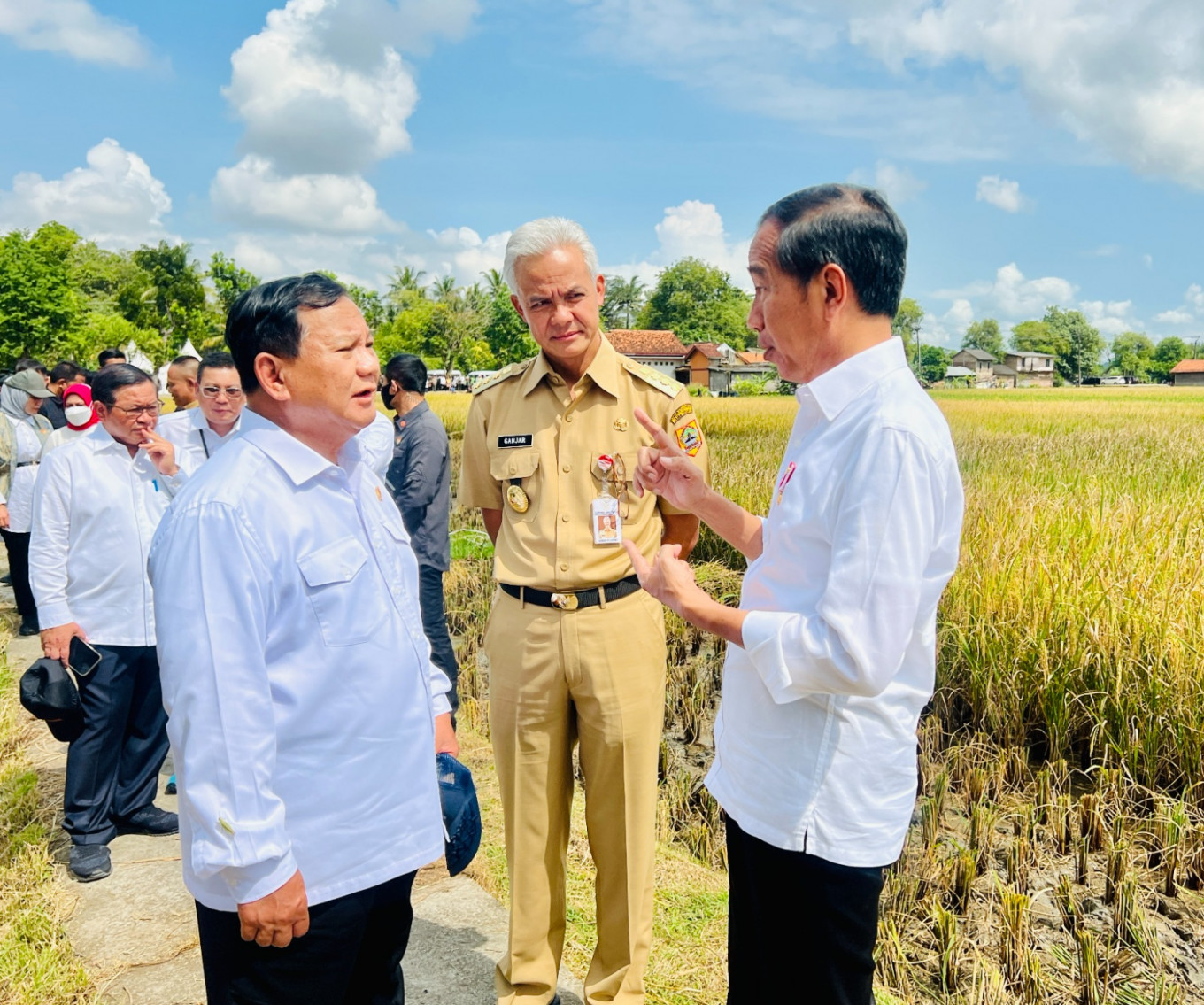Popular Reads
Top Results
Can't find what you're looking for?
View all search resultsPopular Reads
Top Results
Can't find what you're looking for?
View all search resultsYes to single-round election, no to two-horse race
Local elections can be much more democratic and open than national elections.
Change text size
Gift Premium Articles
to Anyone

The idea of pairing the two most popular presidential candidates appeared to be gaining ground, not only to make next year’s election a two-horse race, ensuring a single round of voting, but also to predetermine the winner.
Behind-the-scenes political dealings, which were reportedly mediated and possibly encouraged by the presidential palace, had the goal of pairing Defense Minister Prabowo Subianto with former Central Java governor Ganjar Pranowo on the same ticket for next year’s February presidential election.
However, Megawati Soekarnoputri, the matron of the Indonesian Democratic Party of Struggle (PDI-P), this week quashed the initiative and is now focused on finding a suitable running mate for Ganjar. Prabowo, the founder and chair of the Gerindra party, has yet to name his vice-presidential candidate.
Those arguing for a two-horse race and a single-round presidential election say it would save the country money and prevent unnecessary headaches. As results would be known sooner without a runoff election, there would be less uncertainty about national leadership. And since elections are divisive, holding only one would spare the nation from a potentially disruptive political event.
This attempt to unite the two candidates is covered in President Joko “Jokowi” Widodo’s fingerprints, as he has wavered in choosing which candidate to support. Although barred from running for a third term, Jokowi has defended his cawe-cawe (Javanese for intervention) in the presidential nomination process, which is in the hands of the political parties. His main interest is ensuring that his successor protects and continues his legacies after he steps down in October of next year.
Running a general election is a monumental task, and on top of this, on Feb. 14, Indonesia will simultaneously hold elections for both the national and regional legislatures. In November 2024, there will be elections for governors, regency chiefs and city mayors. A runoff in the presidential election would be held in July if no candidate wins the simple majority vote in February.

The idea of pairing Ganjar and Prabowo, who are neck and neck according to opinion surveys, reveals a dangerous trend toward authoritarianism, especially since it comes from the nation’s political elite. It would deprive voters of their democratic choices and we would probably never know what deals were forged between the parties behind closed doors. We can only assume that the negotiations failed because neither Ganjar nor Prabowo was willing to play second fiddle.
If we apply the same logic to the idea of making the election a two-horse race, then why not simplify it further to a single candidate? This would effectively be the case if the pairing happens in 2024. If any two of the three candidates join forces, the other candidate has no chance of winning. In this case, the election would only be a formality. Soeharto may be dead, but his way of thinking is still very much alive. He was elected and reelected unopposed six times.
There is another way to reduce the presidential election to a single round without a runoff and without trampling on democracy: change the race from a simple to a plural majority, in which the candidate with the most votes wins. No need to get past the 50-percent mark and no need for a second round.
Admittedly, presidential election runoffs are mandated by the constitution, but a plural majority is not a taboo nor a novelty in Indonesia.
All local elections, except in Jakarta, use a plural majority. Many governors, regents and city mayors have governed without having achieved a 50-percent majority. They seem to be doing fine.
These local elections are usually smoother than presidential elections, and they allow independent candidates to run. Local elections can be much more democratic and open than national elections.
Jakarta, which is governed under a special law, uses the simple majority system. In 2017, incumbent governor Basuki “Ahok” Tjahaja Purnama would have retained his job if there had not been a second round, which he lost to Anies Baswedan, February’s likely third contender.
The plural majority system, with more than two candidates, would be less divisive and certainly far less polarizing than the simple majority with a runoff.
Polarization reared its ugly head in both the 2014 and 2019 presidential elections between Jokowi and Prabowo, and the division and fight among supporters at the grassroots level lingered long after the elections. We also saw how identity politics, particularly the use of religious identity, became irresistible to the candidates in their attempts to win extra votes in the closely contested elections.
Contrast this to the 2004 and 2009 elections in which there were five and three candidates, respectively. Susilo Bambang Yudhoyono (SBY) beat Megawati in the runoff in 2004, but in 2009 he won with an overwhelming 62 percent of the vote. There was little polarization, and religion was not a major issue in either election.
Now, many are concerned that the nation will once again experience polarization in the run-up to the February presidential election, even more so if it comes down to a runoff in July, and identity politics will once again tear the nation apart.
It may be too late to amend the Constitution just five months before the election, but this is something worth considering for 2029.
***
The writer is senior editor of The Jakarta Post










